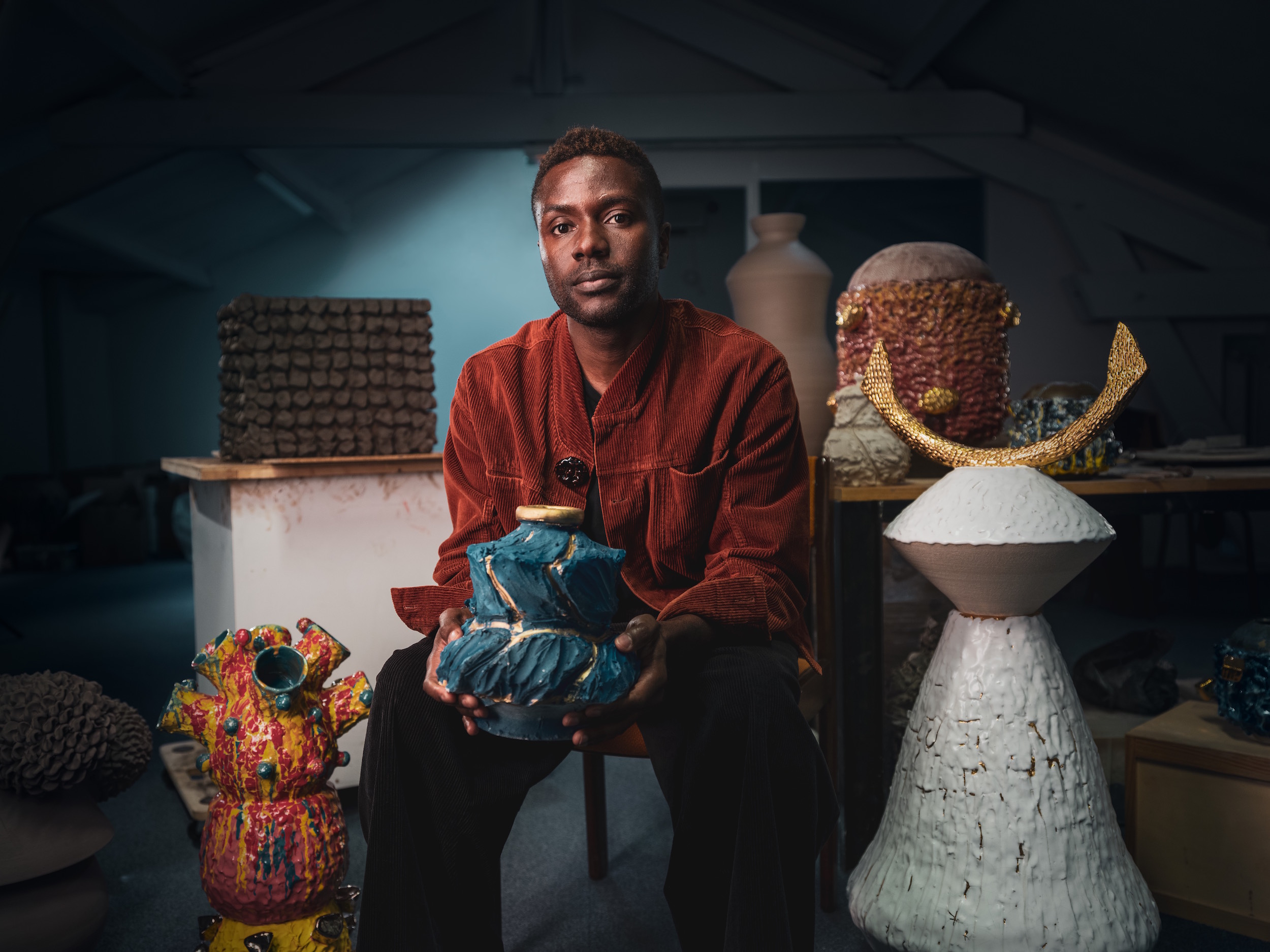ABOUT

King Houndekpinkou (b. 1987) is a Franco-Beninese artist whose practice repositions the ceramic vessel as a form of spiritual transmission, cultural memory, and material intelligence. Working primarily with clay, his work expands ceramics beyond function and tradition, treating form as a bearer of identity, emotion, and ancestral traditions. He lives and works between France, Japan, and Benin and is a member of the International Academy of Ceramics (IAC).
Raised in the suburbs of Paris, Houndekpinkou’s early exposure to 1990s Japanese popular culture (inc. anime, manga, and video games) sparked a lifelong fascination with Japan. In 2012, during his first visit, he inadvertently discovered the existence of the six historical cities of ancestral Japanese pottery known as the Roku Koyō (Bizen, Echizen, Seto, Shigaraki, Tamba and Tokoname). Drawn particularly to Bizen, he returned annually to train with local potters of the Keramos group, notably Toshiaki Shibuta, whom he considers his “Clay Father.”
In Bizen, Houndekpinkou sensed deep affinities between Shinto-inflected ceramic rituals and the Vodun traditions of his Beninese heritage. This synthesis, in which matter is understood as animate, relational, and sacred, became central to his practice. In 2016, he started Terres Jumelles, an ongoing platform connecting pottery communities in Benin and Japan.
His vessels operate as hybrid forms, positioned between sculpture, ritual object and archive, activating shared cosmologies rather than fixed identities. Infused with a sense of imagination and fantasy, they transform material into forms that are at once spiritual, narrative, and otherworldly.
In 2017, his work was included in museum exhibition Regarding George Ohr: Contemporary Ceramics in the Spirit of the Mad Potter (Boca Raton Museum of Art, 2017), curated by Garth Clark, situating his practice within a lineage of artists who have radically expanded the conceptual and sculptural possibilities of the vessel.
A milestone came in 2025, when he exhibited his monumental ceramic sculpture White Totem of Light at the Giza Pyramids, highlighting his dedication to craft, materials, and the universal dimension of his work.
That same year, he launched A GOOD SPACE® in Melun, France, both his personal art studio and a creative label that extends his practice. Conceived as a platform for experimentation, collaboration, and cultural exchange, it serves as a creative hub, supporting the broader artistic community and fostering new forms of expression across disciplines.
King’s work has been shown internationally in museums, biennales, and World Expos across Europe, Asia, Africa, Australia, and the Americas, including the Dakar Biennale (Senegal), the Korean International Ceramic Biennale and World Expo Osaka 2025 (Osaka, Japan). His work is held in prominent public collections, including the Grassi Museum of Applied Arts (Germany), Boca Raton Museum of Art (USA) and the Gyeonggi Ceramic Museum of the Korea Ceramic Foundation (South Korea).
Photo credits: © 2023 KPELR Studios for Glenfiddich